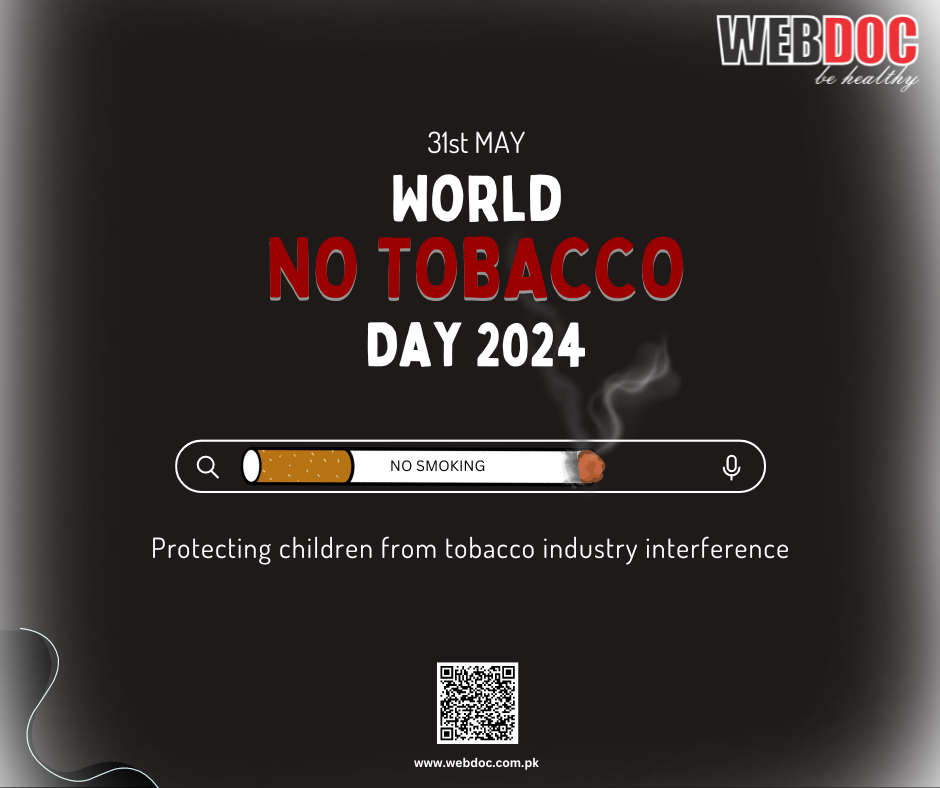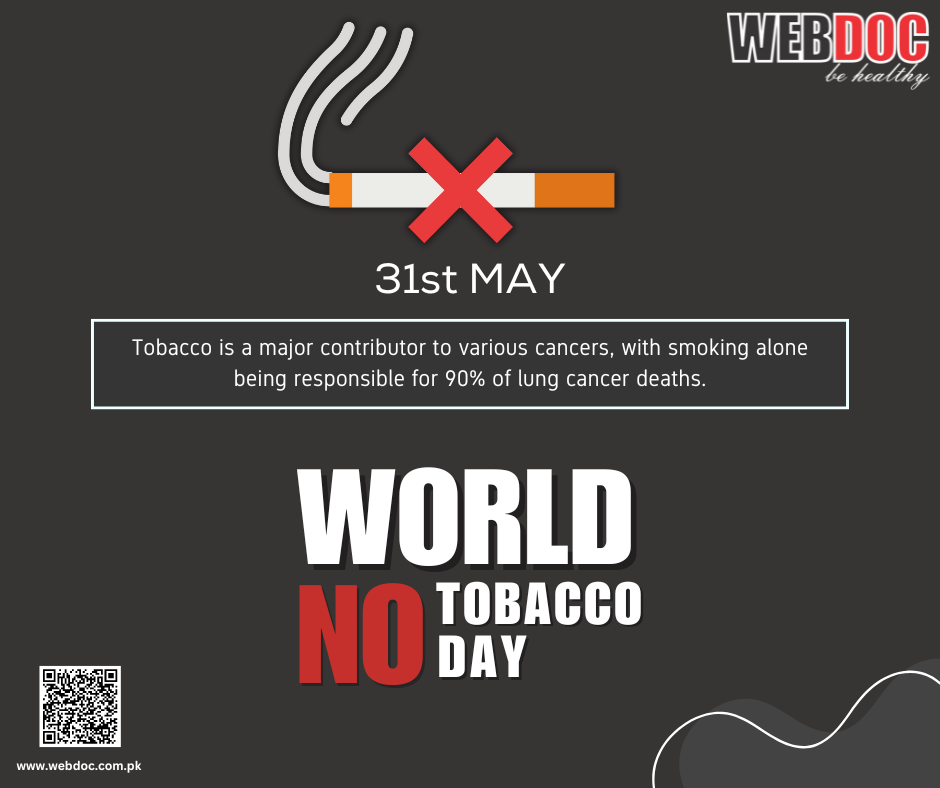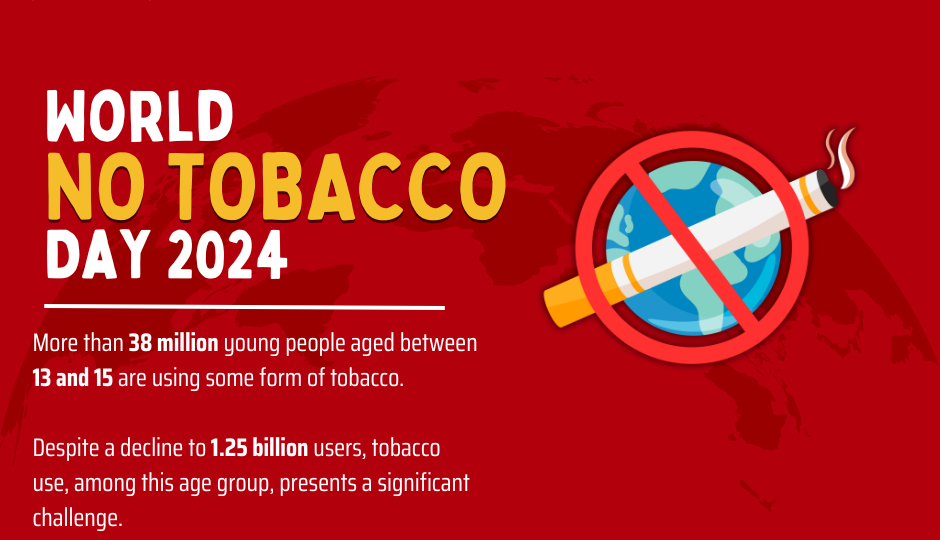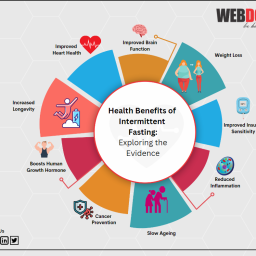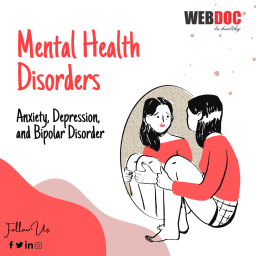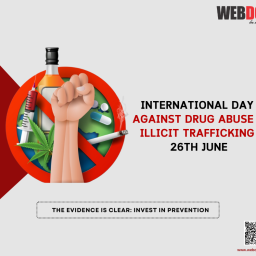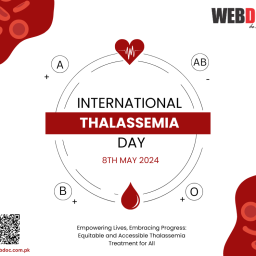A Global Call to End Tobacco Use
Introduction
World No Tobacco Day (WNTD) is an annual event celebrated on May 31, initiated by the World Health Organization (WHO) to highlight the health risks associated with tobacco use and advocate for effective policies to reduce tobacco consumption. The theme for World No Tobacco Day 2024, “Commit to Quit,” focuses on encouraging smokers worldwide to pledge to quit tobacco use and promoting resources and support systems to help them achieve this goal.
The Global Burden of Tobacco
Tobacco use is one of the leading preventable causes of death globally. According to WHO, it kills more than 8 million people each year, with over 7 million of those deaths resulting from direct tobacco use and around 1.2 million from non-smokers being exposed to second-hand smoke. Tobacco use is a major risk factor for many chronic diseases, including cancer, lung diseases, cardiovascular diseases, and more.
The History and Significance of World No Tobacco Day
World No Tobacco Day was established by the WHO in 1987. The first WNTD was observed on April 7, 1988, and the date was later changed to May 31. The day aims to draw global attention to the tobacco epidemic and the preventable death and disease it causes. Each year, WHO selects a theme for the day to create a focused approach to combat tobacco use.
The Theme for 2024: Commit to Quit
The “Commit to Quit” theme for 2024 underscores the urgent need for individuals to make a personal decision to stop using tobacco and for society to support those efforts. The theme aligns with the broader goals of public health initiatives to reduce the prevalence of tobacco use and highlights the benefits of quitting, not just for the individual but also for society as a whole.
The Challenges of Quitting Tobacco
Quitting tobacco is notoriously difficult due to the addictive nature of nicotine. Many smokers attempt to quit multiple times before achieving long-term success. Challenges include withdrawal symptoms, psychological dependence, and social influences. However, the health benefits of quitting are substantial, including improved cardiovascular health, reduced cancer risk, and better overall quality of life.
Strategies to Support Quitting
Effective strategies to support individuals in quitting tobacco include:
Public Health Campaigns:
Raising awareness about the dangers of tobacco use and the benefits of quitting.Support Services:
Offering access to counseling, hotlines, and support groups.Nicotine Replacement Therapies (NRTs):
Providing alternatives like patches, gum, and lozenges to help manage withdrawal symptoms.Prescription Medications:
Medicines such as varenicline and bupropion can assist in reducing cravings and withdrawal symptoms.Behavioral Therapies:
Cognitive-behavioral therapy (CBT) and other forms of counseling can address psychological aspects of addiction.
The Role of Policy and Regulation
Governments and health organizations play a critical role in reducing tobacco use through policy and regulation. Effective measures include:
- Taxation and Pricing: Higher taxes on tobacco products to make them less affordable.
- Advertising Bans: Prohibiting tobacco advertising, promotion, and sponsorship.
- Packaging Regulations: Implementing plain packaging and graphic health warnings.
- Smoke-Free Policies: Creating smoke-free public places and workplaces.
- Education Campaigns: Informing the public about the health risks of tobacco use.
- Success Stories and Global Efforts
Countries that have implemented comprehensive tobacco control measures have seen significant declines in tobacco use. For example:
- Australia: Known for its plain packaging laws and stringent advertising bans, Australia has seen a decrease in smoking rates.
- United Kingdom: The UK has implemented robust public health campaigns and support services, contributing to declining smoking rates.
- New Zealand: Aiming to become smoke-free by 2025, New Zealand has taken aggressive measures including high taxation and extensive public education efforts.
The Economic Impact of Tobacco Use
Tobacco use not only affects health but also imposes a significant economic burden. Costs include healthcare expenses for treating tobacco-related diseases and lost productivity due to illness and premature death. By reducing tobacco use, countries can save substantial amounts in healthcare costs and improve economic productivity.
The Role of Technology in Quitting Tobacco
Advancements in technology have provided new tools to aid in quitting tobacco. Mobile apps, online support groups, and digital health interventions offer accessible resources for those trying to quit. Telemedicine also provides remote access to healthcare professionals who can offer guidance and support.
Community and Social Support
Quitting tobacco is often more successful with the support of friends, family, and community. Social support can provide encouragement, accountability, and practical help. Community programs, such as group counseling sessions and community-led initiatives, can create supportive environments for individuals attempting to quit.
The Future of Tobacco Control
Looking ahead, the future of tobacco control will likely involve a combination of traditional public health measures and innovative approaches. This includes continued efforts in policy-making, leveraging technology, and fostering international cooperation to combat the global tobacco epidemic.
The Role of Youth in Tobacco Control
Youth are a crucial target for tobacco control efforts, as preventing the initiation of tobacco use can significantly reduce long-term prevalence. Educational programs in schools, youth-led advocacy, and strict enforcement of age restrictions on tobacco sales are essential strategies.
Addressing the Tobacco Industry
The tobacco industry employs aggressive marketing tactics and political lobbying to maintain and expand its market. Addressing these tactics through legal measures and public awareness is critical. Holding the industry accountable for its impact on public health is a key component of comprehensive tobacco control.
Conclusion
World No Tobacco Day 2024 serves as a powerful reminder of the devastating effects of tobacco use and the critical importance of quitting. The theme “Commit to Quit” calls on individuals, communities, and nations to prioritize tobacco cessation and support those on their journey to a smoke-free life. By working together, we can make significant strides toward a healthier, tobacco-free world.
Call to Action
On this World No Tobacco Day, let’s commit to supporting ourselves and others in quitting tobacco. Whether through personal resolve, supporting a loved one, or advocating for stronger tobacco control policies, every effort counts. Together, we can create a future where tobacco no longer threatens the health and well-being of our communities.
